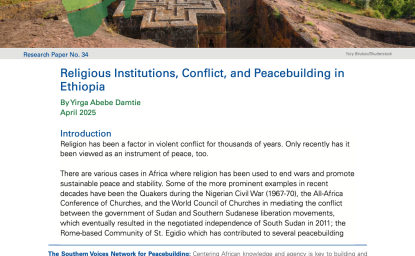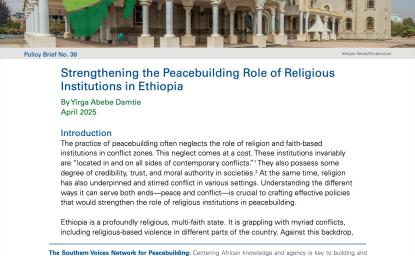This article was released as a sneak peak into Africa: Year in Review 2024. Check in periodically for more releases in the lead up to the launch event in early February.
C
overage of Africa’s economies tends to focus on its natural resources, but increasingly, the future of the continent is being shaped by its potential for digital growth. The continent’s increasingly young, urban, educated, and digital-adopting populations point to a future where start-ups transform traditional industries and create new ones.
Take Nigerian fintech start-up Moniepoint. Launched in 2015, it is meeting the mobile banking needs of one of the world’s fastest growing markets. After going through several initial rounds of funding, it completed a Series C financing in October of this year and is now the eighth African start-up valued at more than $1 billion. In 2023, the Financial Times called it the second-fastest growing company in Africa, spurred on by big-name investors including Google. Such unicorns were once unheard of on the continent, but that is changing. With 618 active tech hubs, countries across Africa are quickly catching up. A critical question remains: who will invest in this transformation?
That’s the mission of Prosper Africa, a presidential-level national security initiative created in 2019. Our focus is on enabling US-based investors—including pension funds, insurance companies, family offices, university endowments, and the investing public—to participate in Africa’s future growth through the global capital markets. The benefits of such investments are clear: not only for growing prosperity in Africa, but also for opportunities for investors and stronger US-Africa ties.
While we are excited about Africa’s potential, we have significant work to do. Less than 1% of global venture capital (VC) flows go to African start-ups (approximately $2.1 billion in 2023). For a continent with nearly 20% of the world’s population—and whose share of that total is going to grow significantly in coming decades—that level of investment is insufficient. Africa is a growth market, and US-based investors should be part of that story.
For decades, Africa’s “Big Four” of Egypt, Kenya, Nigeria, and South Africa have dominated the attention of the few investors who have taken an interest in the continent. Indeed, these four nations offer vibrant and diverse tech ecosystems that span fintech, e-commerce, health tech, and agritech. But increasingly, other nations on the continent are offering similar opportunities with their governments streamlining legal frameworks to make it easier for new businesses to launch, establishing “startup funds” to attract international VCs, and forging public-private partnerships between international accelerators and local technology hubs, all as a part of a broader strategy to strengthen their startup ecosystems. Morocco, Senegal, and Côte d’Ivoire, to name just three, are ready for US-based investors. Last May, Prosper Africa and the US Embassy in Morocco hosted the inaugural US-Morocco VC Forum in Marrakech, Morocco, in the lead-up to GITEX Africa 2024, Africa’s premier tech and start-up exhibition. Such efforts help draw attention to the kinds of start-ups that are going to reshape the continent in the decades to come.
British Robinson is the coordinator for Prosper Africa. Romi Bhatia serves as (acting) North Africa director at Prosper Africa.
Read the rest of the AYIR 2024 early release:
Authors



Africa Program
The Africa Program works to address the most critical issues facing Africa and US-Africa relations, build mutually beneficial US-Africa relations, and enhance knowledge and understanding about Africa in the United States. The Program achieves its mission through in-depth research and analyses, public discussion, working groups, and briefings that bring together policymakers, practitioners, and subject matter experts to analyze and offer practical options for tackling key challenges in Africa and in US-Africa relations. Read more

Explore More
Browse Insights & Analysis
Religious Institutions, Conflict, and Peacebuilding in Ethiopia

Spying on Poachers



